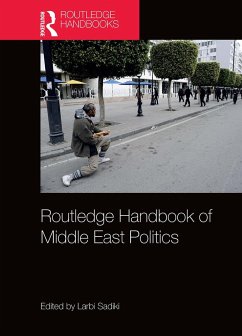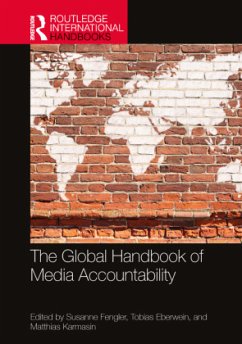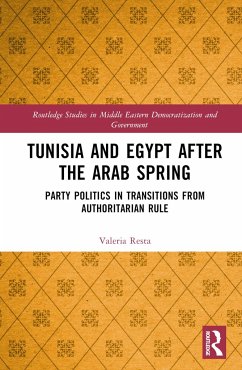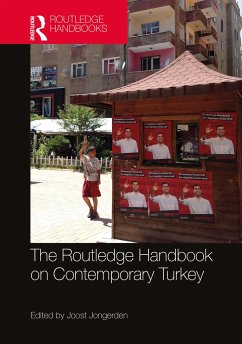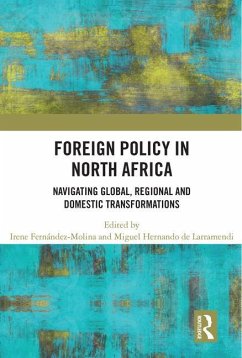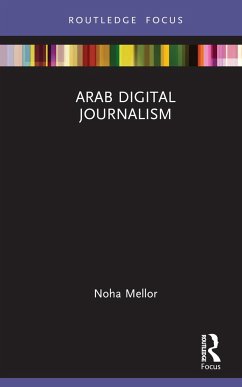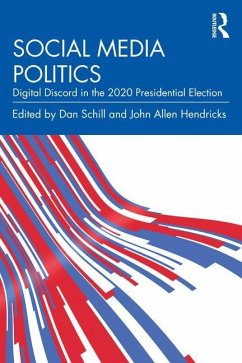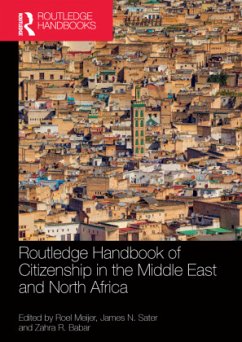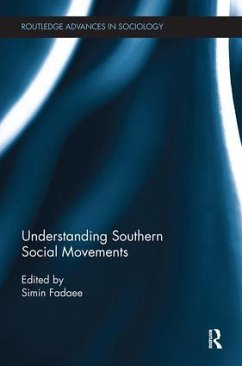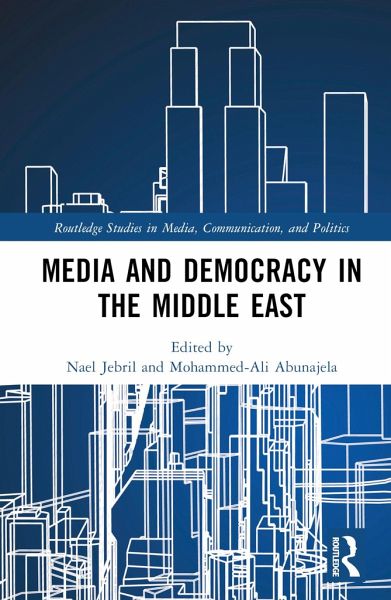
Media and Democracy in the Middle East
Versandkostenfrei!
Versandfertig in 6-10 Tagen
154,99 €
inkl. MwSt.
Weitere Ausgaben:

PAYBACK Punkte
77 °P sammeln!
This edited volume examines the current challenges to media freedom and democratisation in the Middle East. The book revisits the relationship between media consumption and activism in the region, providing thorough analyses on the appropriation of social media for political engagement.Since the outburst and spread of what was known as the 'Arab Uprisings' in 2010, the political and media landscapes in the Middle East region have dramatically changed. The initial hope for democratic change and governance quality improvements has faded, as several regimes in the Middle East have strengthened th...
This edited volume examines the current challenges to media freedom and democratisation in the Middle East. The book revisits the relationship between media consumption and activism in the region, providing thorough analyses on the appropriation of social media for political engagement.
Since the outburst and spread of what was known as the 'Arab Uprisings' in 2010, the political and media landscapes in the Middle East region have dramatically changed. The initial hope for democratic change and governance quality improvements has faded, as several regimes in the Middle East have strengthened their repressive tactics toward voices deemed critical of governments' practices, including journalists, bloggers, and activists. The crumbling Arab media scene has also reached an abysmal low, with little to no independence, and public perception of basic freedoms in the region has significantly dropped, as has trust in media and government institutions. This book examines currentchallenges to media freedom, political participation, and democratisation in the region while reassessing the dynamic relationship between media use and political engagement, amidst a complex political environment accompanied by a rapidly changing digital media landscape.
This book's relevance will appeal to varied audiences, such as scholars and students of journalism, communication, political science, and Middle Eastern studies. It will also prove to be an invaluable resource for organisations dedicated to the research of political communication, media freedom, and use patterns of nontraditional, or new, media.
Since the outburst and spread of what was known as the 'Arab Uprisings' in 2010, the political and media landscapes in the Middle East region have dramatically changed. The initial hope for democratic change and governance quality improvements has faded, as several regimes in the Middle East have strengthened their repressive tactics toward voices deemed critical of governments' practices, including journalists, bloggers, and activists. The crumbling Arab media scene has also reached an abysmal low, with little to no independence, and public perception of basic freedoms in the region has significantly dropped, as has trust in media and government institutions. This book examines currentchallenges to media freedom, political participation, and democratisation in the region while reassessing the dynamic relationship between media use and political engagement, amidst a complex political environment accompanied by a rapidly changing digital media landscape.
This book's relevance will appeal to varied audiences, such as scholars and students of journalism, communication, political science, and Middle Eastern studies. It will also prove to be an invaluable resource for organisations dedicated to the research of political communication, media freedom, and use patterns of nontraditional, or new, media.




